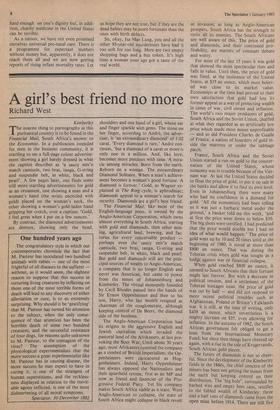One hundred years ago
The congratulatory style in which our contemporaries chronicle the fact that M. Pasteur has inoculated two hundred animals with rabies — one of the most frightful of all diseases to the sufferer without, as it would seem, the slightest reason to suppose that this success in torturing living creatures by inflicting on them one of the most terrible forms of death will lead to any discovery of either alleviation or cure, is to us extremely surprising. Why should it be 'gratifying' that M. Pasteur has turned his attention to the subject, when the only conse- quence of that attention has been the horrible death of some two hundred creatures, and the successful resistance of four dogs, for reasons quite unknown to M. Pasteur, to the contagion of the virus? The assumption of the physiological experimentalists that the more success a great experimentalist like M. Pasteur has in causing disease, the more success he may expect to have in curing it, is one of the strangest of human superstitions, and the reckless- ness displayed in relation to the inevit- able agony inflicted, is one of the most disheartening of all moral symptoms.
Spectator, 30 December 1882


































 Previous page
Previous page